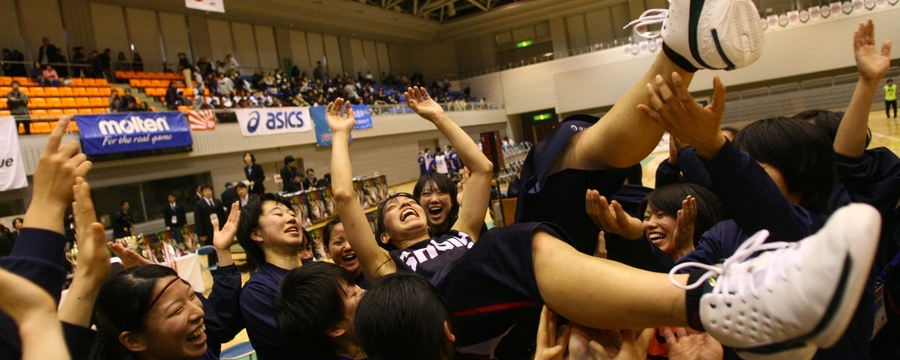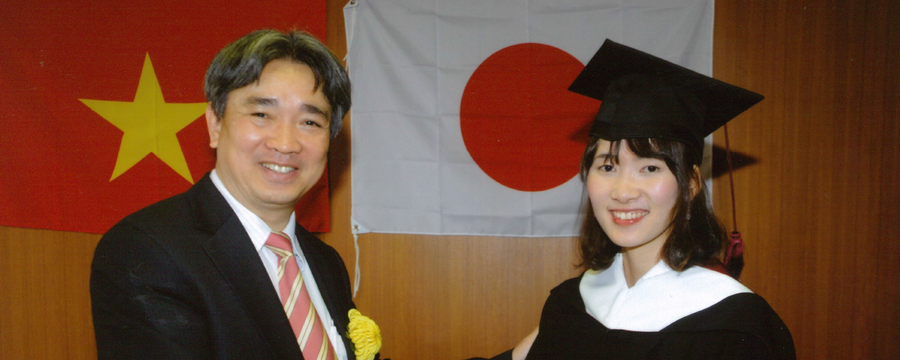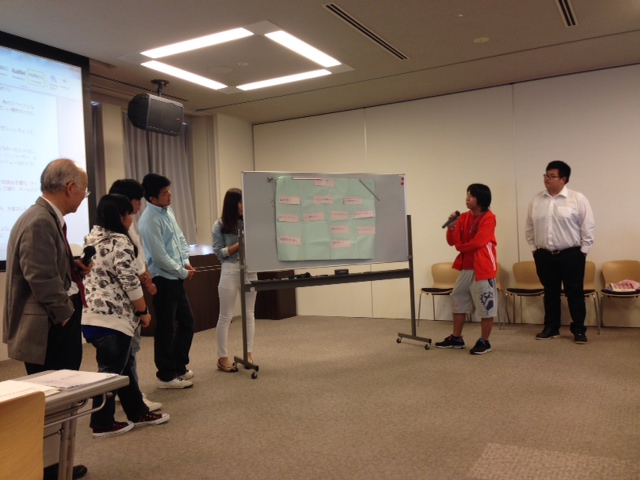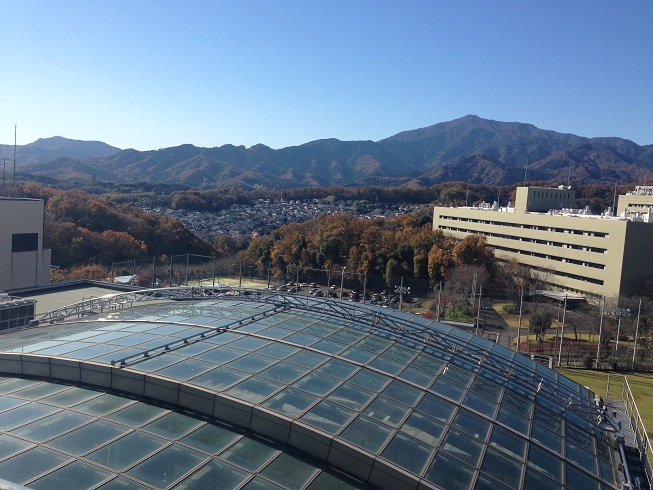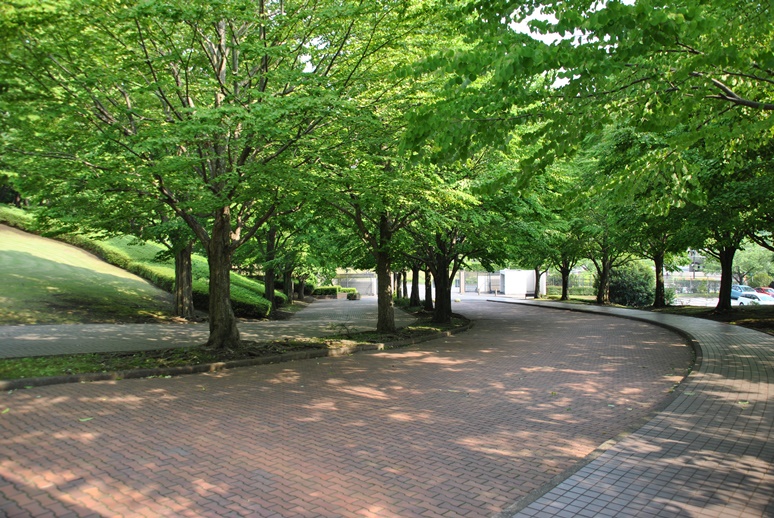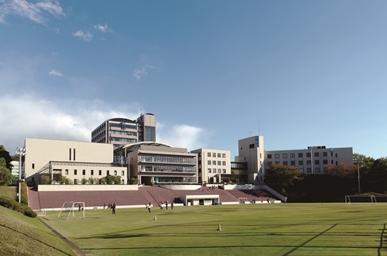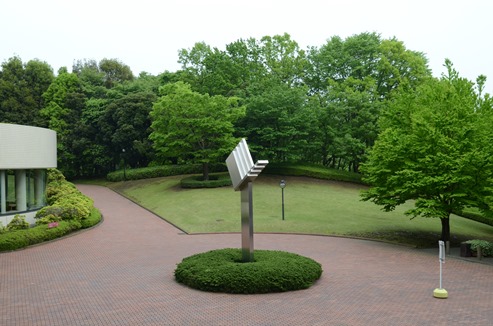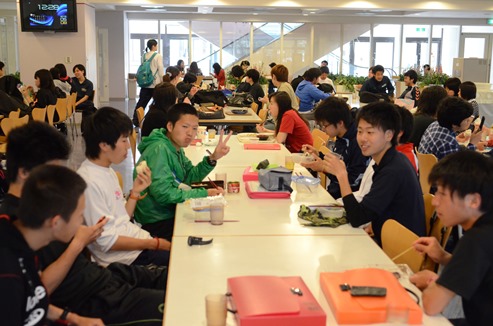About Shoin
Founded as a women’s school in 1941 and chartered by the government of Japan in 2000, Shoin University is devoted to excellence in teaching and research, and to developing dedicated and passionate professionals who make a difference in Japan, Asia, and beyond. Shoin’s faculties are engaged with teaching and research and aim to push the boundaries of human knowledge and capabilities and make Japan and the world a better place to live.

Shoin University was established with the motto of the integration of knowledge and action works toward the betterment of society (知行合一). This philosophy continues to be our foundation. Today, the university consists of four different faculties (Faculty of Business Administration and Corporate Culture, Faculty of Communication and Culture, Faculty of Tourism, Media, and Cultural Studies, and Faculty of Nursing) and one professional graduate school (Graduate School of Business). As you may have noticed, the oldest three faculties have included the word ‘culture’ in their name, demonstrating the university’s commitment to promoting diversity and equality in our community since its foundation date up to the present day. We believe that understanding different cultures and values, and comprehending how different cultures and communities address the same issues, always widens our perspective and stimulates discussions that power rigorous inquiry into our traditional values and cultures. The university welcomes students from other countries and cultures who bring to the campus direct contact with the rich heritage of their home countries. In return the university is eager to provide Japanese opportunities and culture.
The basic organizational units operating under the faculties are its nine departments (Department of Finance and Economics, Department of Business and Law, Department of Business Management, Department of Japanese Culture and Communication, Department of Intercultural Communication, Department of Applied Psychology, Department of Tourism and Cultural Studies, Department of Media and Information Studies, and Department of Nursing) and 130 faculty members, who have diverse academic and professional experience in these disciplines. We also welcome students who want to pursue diverse academic pursuits and are interested in bridging these disciplines, widening their perspectives and discovering concentrations that fit their individual interests.
Admissions
 Admission to Shoin University is based on a variety of academic, extracurricular, social, and personal qualities. Students should submit their applications as early as possible so our admission staff can help them through the process. Final admission decisions take a number of different factors into account. There is no formula—no mathematical combination of test scores and grades that guarantees admissions. We look at and value applicants’ entire application, from essays to recommendation letters to test scores. All applications will be treated and evaluated equally by the Admissions Committee. Shoin University is committed to educating students regardless of race, color, ethnicity, national origin, religion, creed, sex, age, marital status, parental status, physical disability, learning disability, political affiliation, or sexual orientation.
Admission to Shoin University is based on a variety of academic, extracurricular, social, and personal qualities. Students should submit their applications as early as possible so our admission staff can help them through the process. Final admission decisions take a number of different factors into account. There is no formula—no mathematical combination of test scores and grades that guarantees admissions. We look at and value applicants’ entire application, from essays to recommendation letters to test scores. All applications will be treated and evaluated equally by the Admissions Committee. Shoin University is committed to educating students regardless of race, color, ethnicity, national origin, religion, creed, sex, age, marital status, parental status, physical disability, learning disability, political affiliation, or sexual orientation.For those applying for admission to the Class of 2020 starting April 1, 2016, we plan to change our current admission process in order to make it easier for international students living outside of Japan to apply. Please come back in October for further information.
Academics
Why Shoin?
1. Our Commitment to Diversity and Inclusion
Diversity and inclusion have been fundamental values of the university since its foundation as a women’s school in 1941. More than 60 years ago, Shoin became one of the pioneers to introduce sports education for women in Japan. Shoin was also one of the first to provide an undergraduate program for students aged 50 and older in 2012. In 2013, Shoin became one of the first universities where an international student graduated at the top of her cohort and gave a valedictory speech at graduation. Shoin is proud of this tradition and continues to provide an environment in which highly motivated students from diverse backgrounds can flourish and find success in the classroom and beyond. Shoin will not discriminate against any individual on the basis of race, color, ethnicity, national origin, religion, creed, sex, age, marital status, parental status, physical disability, learning disability, political affiliation or sexual orientation.
2. Student/Faculty Ratio
Japanese people tend to think that college is about signaling, not about building human capital. However, we are interested in educating students and increasing their potentials and capabilities. We strongly believe that a good education needs both quality and quantity of instructors. As for quantity, smaller class sizes allow instructors to spend more time with each student, provide better instruction that is tailored to students’ individual needs, and guarantee higher performance. Professors teach approximately 80 percent of our undergraduate level classes and Shoin’s overall student-faculty ratio is an impressive 10 to 1, which is the lowest student/teacher ratio in Kanagawa Prefecture (with the exception of some medical- and dental-only colleges). This is much lower than some of the top private universities in Japan such as Keio University (21 to 1), Waseda University (40 to 1), and Sophia University (26 to 1). As for class size, nearly three-quarters of all undergraduate classes have fewer than 20 students. Some of our faculty members have attained distinctive achievements in their academic and professional careers. Those include a recipient of the Medal of Honor in Japan, a Deputy Secretary-General of Liberal Democratic Party (LDP), and an ex-Ambassador of Ethiopia. Many of our faculties have been educated or trained in foreign universities, such as Harvard University, Cornell University, University of Minnesota, SUNY Stony Brook, University of Mannheim, and University of Birmingham). Some of our faculties have teaching experience in top academic institutions such as University of Oxford and Tokyo Institute of Technology.
3. Academic Integrity
Shoin University seeks to maintain a learning and working environment characterized by academic integrity and fair access to academic resources. We are strongly against academic misconduct, which has prevailed throughout Japanese universities. A sequence of plagiarism incidents in Waseda University in 2014 revealed that academic misconduct has abounded even in the top universities in Japan and such practice is not always regarded as a serious academic crime among faculties and students at these universities. We distinguish ourselves from them. We regard that academic misconduct is a serious academic crime and the policy for students who commit plagiarism will be strictly enforced. We believe that student membership in the Shoin community is a privilege conditional upon ethical conduct in academic and other matters. All students share in Shoin’s responsibility to maintain an environment that is conducive to academic freedom and the creation of new ideas.
4. Our Commitment to the Global Development and Sustainable Development Goals (SDGs)
In 2015, Shoin University declared its commitment to the achievement of Sustainable Development Goals (SDGs). Shoin University served as a Stakeholder Steering Committee member for the May 2015 United Nations General Assembly interactive hearings for the Post-2015 Development Agenda. Shoin University is an affiliated member of the United Nations World Tourism Organisations (UNWTO), an university partner of the United Nations Human Settlements Programme (UN Habitat), a member of the United Nations Academic Impact (UNAI), and a member of the United Nations Sustainable Development Solution Network (SDSN). Shoin University has a partnership agreement with JICA Yokohama and has jointly offered courses to combine the theory and practice of global development since 2004. The course is currently open to students in all private universities located in Kanagawa Prefecture. Moreover, our faculty members have also consulted with a various international organizations such as the United Nations Development Programme (UNDP) and the United Nations Population Fund(UNFPA).

UNAI Certificate 
Provost Matsuura at the UN General Assembly Joint Shoin/JICA Yokohama Lecture Series
Academic Department
Undergraduate Program
Faculty of Business Administration and Corporate Culture
Department of Finance and Economics
Department of Business and Law
Department of Business Management
Faculty of Communication and Culture
Department of Japanese Culture and Communication
Department of Intercultural Communication
Department of Applied Psychology
Faculty of Tourism, Media, and Cultural Studies
Department of Tourism and Cultural Studies
Department of Media and Information Studies
Faculty of Nursing
Department of Nursing
Graduate Program
Graduate School of Business Administration
Research
Shoin’s faculties are engaged with teaching and research and aim to push the boundaries of human knowledge and understanding in a wide variety of academic and professional fields. In March 2015, Shoin will create a new institute devoted to teaching and research in the fields of business, communication, culture, tourism, and health. The Shoin Institute for Advanced Study will provide support for and foster collaboration among those who are interested in conducting research in these fields.
Campus Life
Academic Calender
Shoin’s calendar operates on the semester system, in which the academic year is divided into two 15-week terms. The fall semester starts during the 2nd week of April and ends after the 2nd week of July. Spring starts in about the 2nd or 3rd week of September and ends after the 2nd week of March. To view the Academic Calendar, please click here.
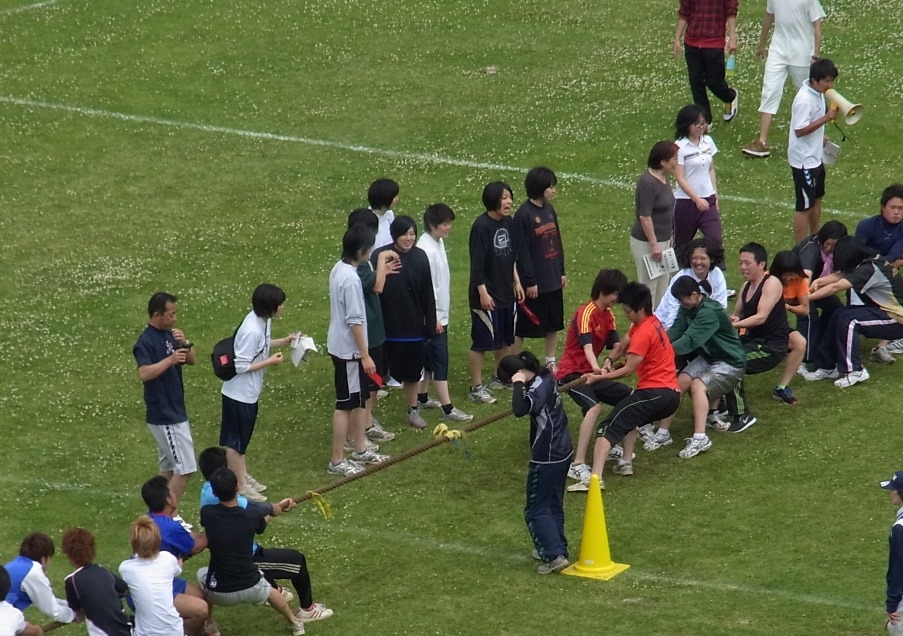
Annual May Festival of Sport 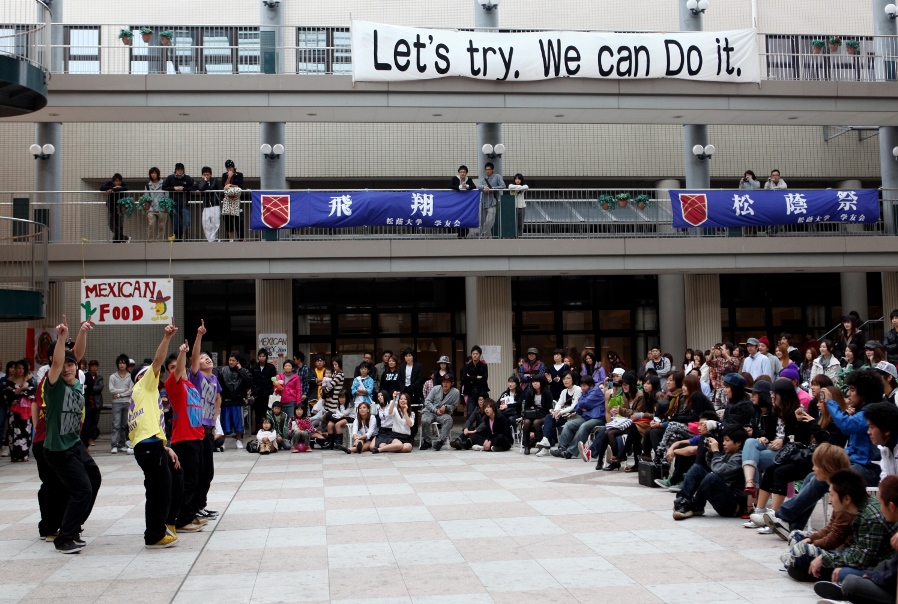
October University Festival 
Commencement
Campus Architecture

Main Atrium at Night 
Shoin Hall
The Sky Above the Roof and Mount Oyama
Campus Landscape
Main Street
Soccer Field
The Monument: "Over the Rainbow"
Local Interest
Atsugi is a commuter belt suburb for the Tokyo-Yokhohama metropolitan area, which is the world’s largest, with more than 37 million inhabitants, and is home to several major technology firms and research centers close to some excellent natural scenery of Mount Oyama. The main downtown area is located near Hon-Atsugi station. The downtown area is a thriving community of shops, restaurants, cafés, movie theaters, art galleries, libraries, residential neighborhoods, parks, business districts, and recreational facilities. The city also boasts a couple of spas - the Iiyama Spa and the Nanasawa Spa - both of which sit amidst beautiful forested countryside. These hot springs leave one’s skin feeling silky smooth, giving it its reputation for producing water for beautiful skin. Mount Oyama takes about an hour to reach from Hon-Atsugi station but it is one of the most notable natural sites in the area and well worth visiting. The city of Atsugi is also a treasure trove of gastronomic delights. In particular, “Shirokoro (Bovine) Hormone” is renowned as the king of tasty affordable foods (B-grade gourmet) and was the champion of All Japan B-grade Gourmet Contest in 2008. Atsugi is also famous for Ayu (sweetfish) fishing and its Ayu Matsuri Festival is held on the first Saturday of August every year. Approximately 10,000 fireworks brighten up the night sky of the city of Atsugi on that day.

Shirokoro Hormone* 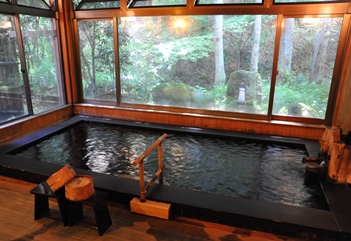
Nanasawa Spa* 
Atsugi Ayu Festival*
International Students
Shoin believes that international students drive the diversity of our community and create conversations that power rigorous inquiry for our intellectual population. We have been committed to providing an environment in which highly motivated students of diverse backgrounds can flourish and find success in the classroom and beyond. Shoin provides a supportive academic environment, which helps our students to assist international students in making the transition to a Japanese university. In 2013, Ms. Phan Thai Ngoc Tram, originally from Vietnam, graduated from Shoin University as a top student in her cohort. We are very proud of her achievement and hope that all of our international students can continue to achieve their goals to the same extent as home students in the future.
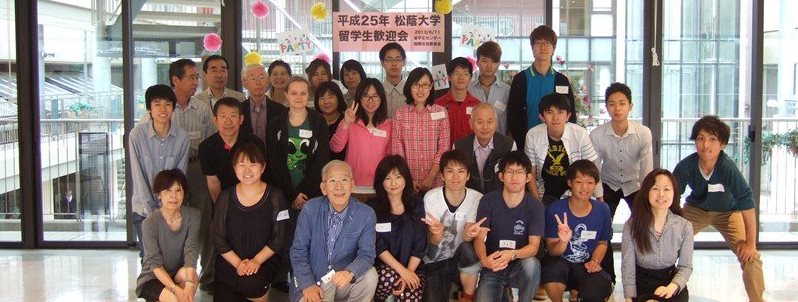
Athletics and Recreation
Varsity Sports
Shoin is one of the pioneers of sports education for women in Japan and this tradition still remains alive in the campus. The Shoin women’s basketball team is one of the most celebrated teams in the country. Shoin was the winner of the All Japan Intercollegiate Basketball Championship Tournament in 2005 and 2013 and has participated in the All Japan Basketball Championship Tournament eleven times since its creation in 2000. In addition, the Shoin women’s volleyball team was ranked fifth place in All Japan Volleyball Championship Tournament in 2013 and 2014. We are also happy to have distinguished athletes, teams and guests in our men's varsity sports teams. In 2013, Ryohei Yoshihama joined Shonan Bellmare Football Club and started his professional career in the Japan Professional Football League. From 2008, Aritaka Kajiwara was selected in the Kanto Region Selected Team four years in a row and became only runner in history to participate in the Tokyo-Hakone Round-Trip College Ekiden Race(Hakone Ekiden), with the absence of participation as a team.

Women's Bascket Ball 
Women's Volleyball 
Men's Ekiden(A Long-distance Relay Race)
A complete list of varsity sports are listed here.
Other Student Organizations
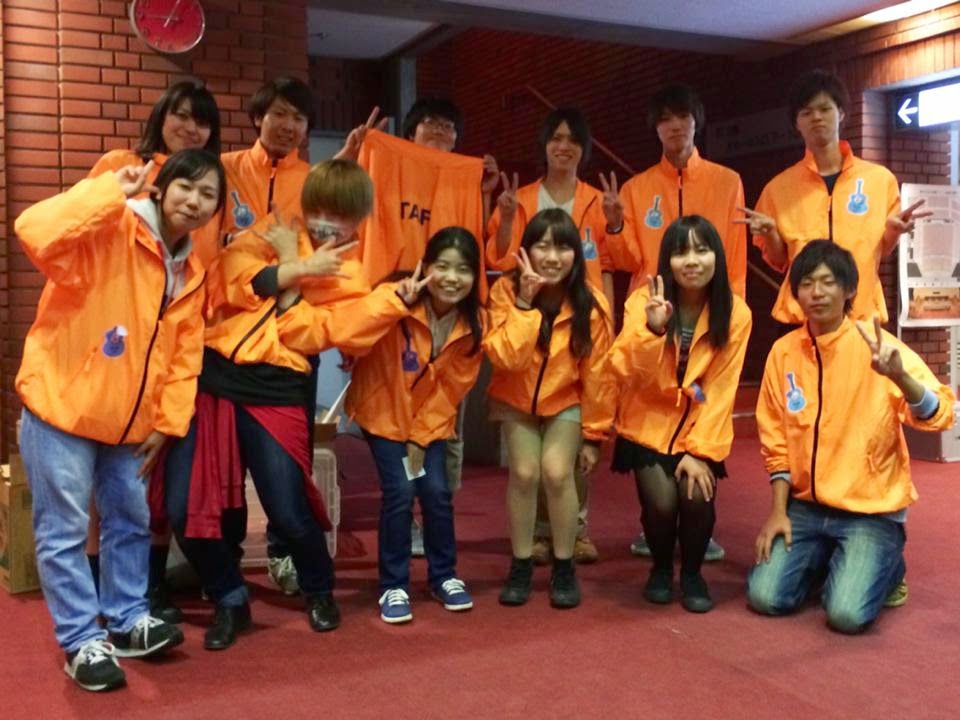
Team Lynx (Volunteer Society) 
Anime Society 
Society for Pop Musicians
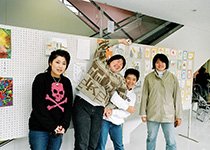
Art Society 
Dance Team 
Japanese Tea Ceremony Society
A complete list of student organizations are listed here
Recreation Facilities
Main Cafeteria 
Fitness Center 
Tennis Courts

Golf Driving Ranges 
Indoor Soccer Ground 
Women's Powder Room

